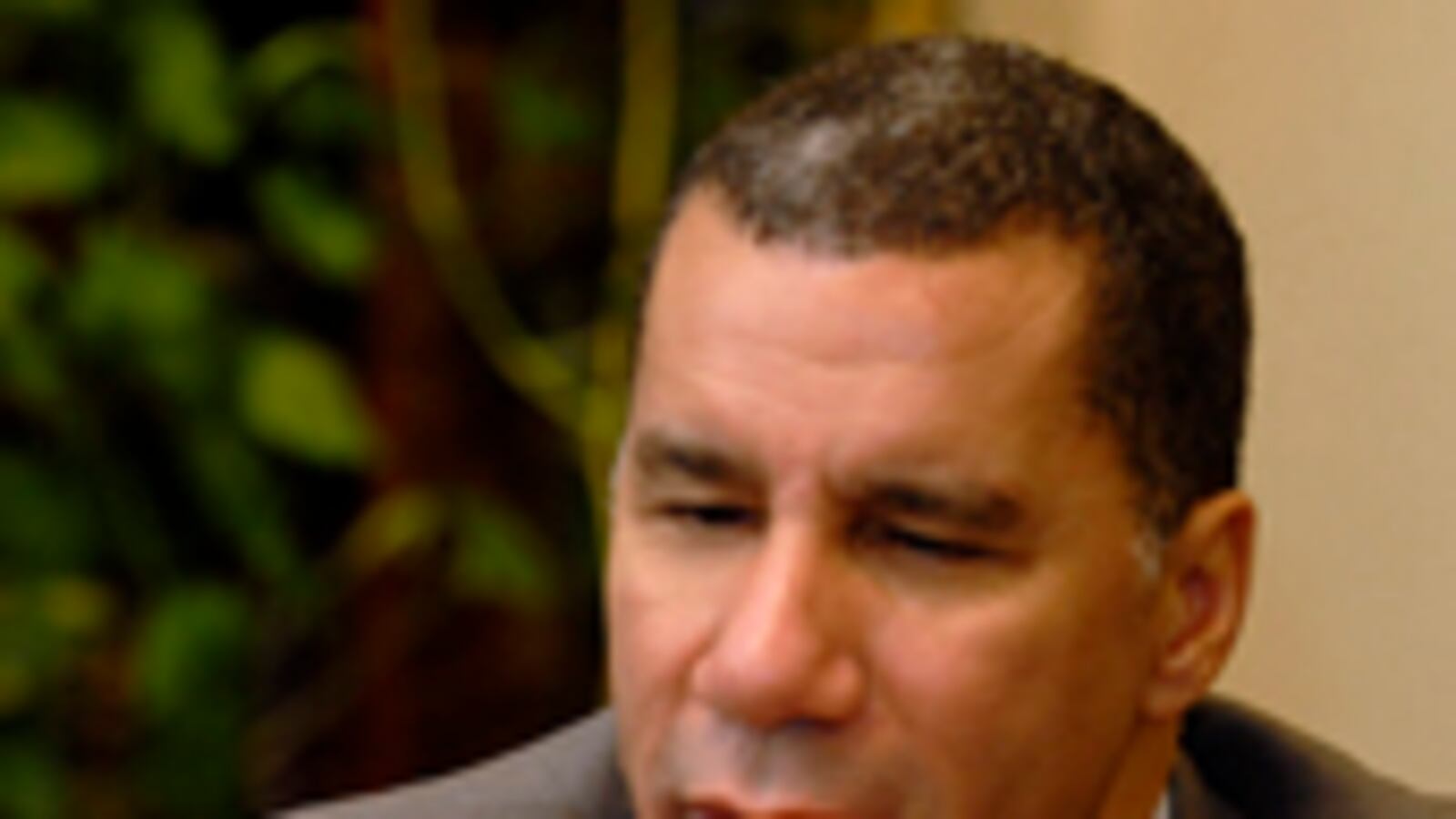
There is no denying that David Paterson, the soon-to-be ex-governor of New York, has proved an embarrassment to his friends and supporters. The unraveling of what briefly looked like a promising political career has been swift. After backing sweeping legislation designed to fight domestic violence, we now have very good reason to believe that the governor actively intervened on behalf of a loyal aide accused of domestic violence. And he also stands accused of lying under oath to justify the decision to accept choice World Series tickets from the Yankees, despite the fact that the team is lobbying the state government for public funds. One imagines that Paterson had no idea that a few baseball tickets would prove the death-knell of his long and very peculiar political career, making him look more pathetic than truly venal. What rankles about all of this is that Paterson, for all his deep flaws, might be the best governor New York has had in decades.
Despite his reputation as a liberal firebrand, the governor has proved far more of spending hawk than Pataki, and he's proved gutsier than his predecessor Eliot Spitzer.
If Paterson gets credit for nothing else, he deserves high praise for finally taking on New York's onerous Rockefeller drug laws, a massive jobs programs for prison guards and for the economically depressed upstate towns that warehouse hundreds of thousands of people, most of them men, from inner city neighborhoods. Back in the 1970s, as the state faced an explosion in violent crime, mandatory minimum sentences for low-level drug offenders swelled the ranks of prisoners, and helped destroy the job prospects of a generation of young men, not to mention the wrenching impact of literally millions of families. While there's no doubt that violent offenders need to be incarcerated, huge numbers of nonviolent offenders, most of them in need of treatment and guidance to prevent recidivism, have been caught up in the maw of a dangerous and often corrupt prison system. One of the most vivid demonstrations of the lasting impact of the Rockefeller drug laws can be found at Columbia University's Spatial Information Design Lab, which created a map of New York's "million dollar blocks," city blocks where the state government spends $1 million or more incarcerating residents. Reforming the Rockefeller drug laws didn't prove much of a political boon. As Paterson's Democratic predecessors understood, inner-city voters were going to back the party regardless. But it was the right thing to do, and only Paterson was willing to take the hit.
• Linda Hirshman: The Ultimate Abuse of Power To understand David Paterson's virtues, its important to understand that the state of New York has been on an unsustainable course for decades. After three terms in office, George Pataki, first elected as a tax-cutting, government-shrinking conservative, had evolved into an ally of the state's all-powerful public sector unions and a proponent of sharply increasing spending across the board, but particularly on Medicaid. Since the start of the decade, state spending has increased by roughly 7 percent a year, leaving aside spending funded by the federal government. So when Albany talks about painful cuts, it's worth keeping in mind that no one is proposing restoring the spending levels that prevailed ten years ago, though the population of the state has increased only slightly over the same period. Granted, there ought be room for growing the state budget in line with overall economic and wage growth. But of course spending growth has far outstripped the expansion of the overall economy. As the upstate economy has shriveled, the state government has come to rely heavily on the financial sector as a revenue source. The trouble is that Wall Street isn't just based in Wall Street. Leaving aside the very real possibility that the financial sector will shrink in the wake of the downturn, more of it is located offshore--in back offices in India and the Philippines, and in Stamford and the leafy precincts of Greenwich, home to some of the world's largest and most powerful hedge funds. Moreover, relying on Wall Street bonuses to fund the basic functions of government has an obvious downside: in lean years, when salaries are pared back, the state has to find a way to pare back spending or rely on federal largesse. Like California, New York depends on a small and very footloose slice of the electorate to raise revenue, which leaves the state vulnerable.
Faced with a $7.4 billion budget gap, Paterson has aggressively trimmed the budget while also proposing tax increases, making enemies to his right and left. Despite his reputation as a liberal firebrand, the governor has proved far more of spending hawk than Pataki, who used strong revenues to permanently ratchet up spending levels, and he's proved gutsier than his predecessor Eliot Spitzer, who left office before confronting truly difficult choices. Among other things, Paterson called for reducing aid to state and local governments, a move that will likely lead to property tax increases. He also limited property tax relief to owners of homes valued at $1.5 million or more. He proposed sharply raising the tax on cigarettes by $1 a pack as well as a new soda tax. To fund ballooning Medicaid costs, he called for various surcharges on medical providers. And he's also trimmed aid to SUNY and CUNY, while allowing the state's public universities to increase tuition. But the real action is on the spending side, where Paterson has called for hard caps on spending growth, earning the enmity of public sector workers and middle class households across the state.
It should go without saying that Paterson could have gone further. New York state faces severe structural problems, and the sad truth is that more aggressive action is necessary as spending will continue to outstrip revenues by an ever-widening margin over the next few years. Considering the political challenges, however, he has proved extraordinarily courageous. Now, thanks to a combination of profound character flaws and bad luck, he is likely to be replaced by Andrew Cuomo, a greasy pole-climber who sees Albany as a stepping stone to greater prominence. One reason that David Paterson proved such a refreshingly bold and idiosyncratic governor is that he never wanted the job. It's often said that he'd much rather be a U.S. senator, a job in which he could draw on his long legislative experience. He nevertheless felt an obligation to do his difficult job well, even if it meant taking serious risks. Now he's all but gone.
Reihan Salam is a policy adviser at e21 and a fellow at the New America Foundation.
For more of The Daily Beast, become a fan on Facebook and follow us on Twitter.
For inquiries, please contact The Daily Beast at editorial@thedailybeast.com.
An earlier version of this story incorrectly described the woman a Paterson aide is accused of abusing as the aide's wife.






